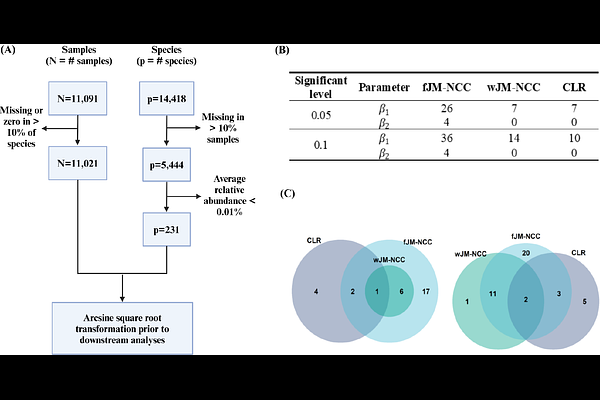Joint Modeling of Longitudinal Biomarker and Survival Outcomes with the Presence of Competing Risk in Nested Case-Control Studies with Application to the TEDDY Microbiome Dataset

Joint Modeling of Longitudinal Biomarker and Survival Outcomes with the Presence of Competing Risk in Nested Case-Control Studies with Application to the TEDDY Microbiome Dataset
Zhao, Y.; Lee, T.; Zhou, B.; wang, c.; Schmidt, A. M.; Liu, M.; Li, H.; Hu, J.
AbstractMotivation: Large-scale prospective cohort studies collect longitudinal biospecimens alongside time-to-event outcomes to investigate biomarker dynamics in relation to disease risk. The nested case-control (NCC) design provides a cost-effective alternative to full cohort biomarker studies while preserving statistical efficiency. Despite advances in joint modeling for longitudinal and time-to-event outcomes, few approaches address the unique challenges posed by NCC sampling, non-normally distributed biomarkers, and competing survival outcomes. Results: Motivated by the TEDDY study, we propose \"JM-NCC\", a joint modeling framework designed for NCC studies with competing events. It integrates a generalized linear mixed-effects model for potentially non-normally distributed biomarkers with a cause-specific hazard model for competing risks. Two estimation methods are developed. fJM-NCC leverages NCC sub-cohort longitudinal biomarker data and full cohort survival and clinical metadata, while wJM-NCC uses only NCC sub-cohort data. Both simulation studies and an application to TEDDY microbiome dataset demonstrate the robustness and efficiency of the proposed methods.